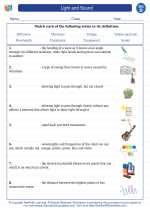Light and Sound -> observation
Observation in Science
Observation is a key skill in science that involves using the senses to gather information about the world. It is the act of noticing and describing events or processes in a careful, orderly way. Scientists often rely on observations to collect data and make discoveries about the natural world.
Types of Observations
There are two main types of observations in science:
- Qualitative Observations: These involve descriptions that do not use numbers. For example, the color, shape, texture, and smell of an object are qualitative observations.
- Quantitative Observations: These involve measurements and numerical data. For example, the length, weight, temperature, and volume of an object are quantitative observations.
Importance of Observation
Observation is important in science for several reasons:
- It allows scientists to gather data and information about the natural world.
- It helps in making accurate measurements and recording data.
- It is the first step in the scientific method and is essential for forming hypotheses and making predictions.
- It can lead to new discoveries and insights about the world around us.
Developing Observation Skills
Improving observation skills is crucial for being a successful scientist. Here are some tips to develop strong observation skills:
- Use all your senses: Pay attention to what you see, hear, smell, taste, and touch.
- Be patient: Take the time to carefully observe and note details.
- Practice: Regularly practice observing different objects and phenomena.
- Ask questions: Inquire about what you are observing and seek to understand it better.
Study Guide for Observation
Here are some questions and activities to help you study and understand the concept of observation in science:
- What is the difference between qualitative and quantitative observations? Provide examples of each.
- Observe a natural object (e.g., a leaf, a rock, a flower) using all your senses. Record your qualitative and quantitative observations.
- Watch a simple chemical reaction, such as mixing baking soda and vinegar. Observe the changes that occur and record your observations.
- Think of an animal behavior (e.g., a bird building a nest, a dog wagging its tail). Observe the behavior and describe it in detail.
- Discuss the importance of observation in making scientific discoveries and advancements.
By practicing observation and honing your skills, you can become a better scientist and gain a deeper understanding of the world around you.
[Observation] Related Worksheets and Study Guides:
.◂Science Worksheets and Study Guides Fourth Grade. Light and Sound
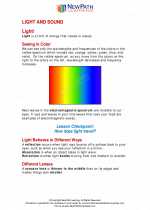
 Worksheet/Answer key
Worksheet/Answer key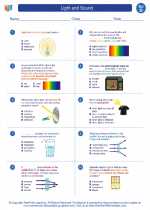
 Worksheet/Answer key
Worksheet/Answer key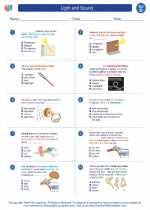
 Worksheet/Answer key
Worksheet/Answer key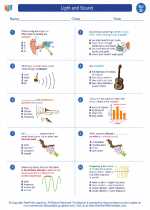
 Vocabulary/Answer key
Vocabulary/Answer key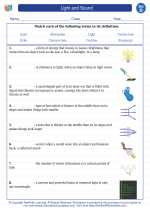
 Vocabulary/Answer key
Vocabulary/Answer key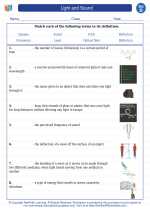
 Vocabulary/Answer key
Vocabulary/Answer key